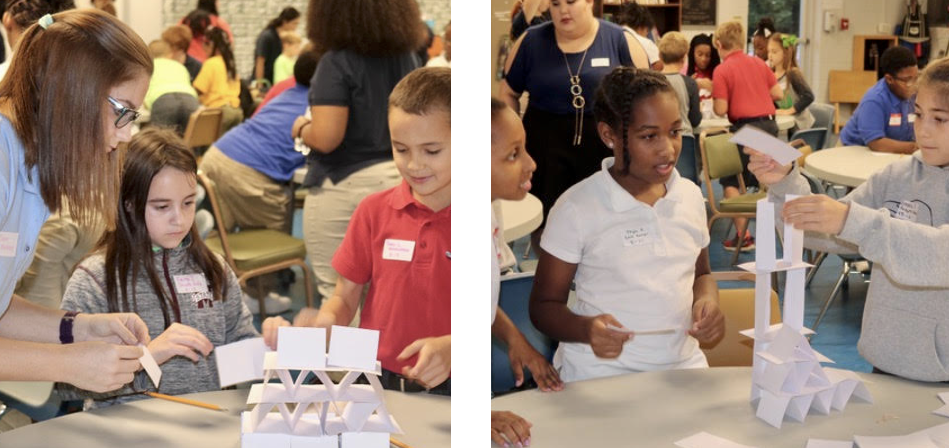Mississippi School for Mathematics and Science (MSMS) hosted the third annual Math Superstars Competition on Wednesday, October 11. Math Superstars is one of MSMS’s most important outreach activities and was created specifically for elementary aged students. MSMS math instructor and Presidential Award for Excellence in Science Teaching winner, Lauren Zarandona developed the concept based on a similar experience she had a budding mathematics student. Her own experience made such a lasting impact, Mrs. Zarandona wanted to provide elementary school kids across the state of Mississippi with a similar opportunity.
When asked about her impetus for creating the program, Mrs. Zarandona stated, “Schools across the state depend on tests scores to improve their ranking in the state. In doing so, the brightest students in the class find themselves needing more of a challenge. Math Superstars works to challenge students in two ways: first they do three weeks of problem sets independently in their classrooms and then the top scorers compete at MSMS. We want to motivate students to persevere in problem-solving by providing challenging, interesting problems and to inspire them to pursue excellence in math in all of their courses.”
To assist with the development of the problem sets and coordinate event logistics, Mrs. Zarandona solicited support from the MSMS Mu Alpha Theta mathematics honor society and the entire senior class. Leah Pettit, current MSMS senior and Mu Alpha Theta leader, said, “This year, we were really lucky to have so many MSMS kids writing problems, because that meant we could carefully structure the tests and questions to be exactly how we wanted them.” This additional support from the student body allowed for further customization of the problem sets based on student grade level.
Roughly 120 students, representing five districts across the state of Mississippi, traveled to Columbus to participate in this year’s competition. This year’s event included team building activities, individual problem sets, math concept stations, and Breakout Boxes. Students were encouraged to interact with their peers from other districts during collaborative team based activities.

